What defines the legend of Mohandas Karamchand Gandhi ? In terms of current marketing jargon, might we call him a disruptor? After his appearance, the situation and direction of Indian politics underwent profound transformations. Since his passing more than seven decades ago, Bapu has evolved into a renewed and revitalized tradition after every dispute or controversy.
The world’s dissidents and demonstrators have learned from him. Recently, Hong Kong residents flocked to the streets to protest Beijing’s policies. This massive demonstration occurred in response to a bill that would have permitted Hong Kong residents to be deported and prosecuted in mainland China. This aroused worries about the deterioration of the “one country, two systems” rule and the diminution of democracy. Despite several threats and pressures, demonstrations persisted, and Beijing eventually capitulated. The first seeds of this movement were planted in 2014 when individuals wanted more freedom. It gained worldwide notice.
However, there was an interesting query. Why was the leadership that orchestrated the bloodbath in Tiananmen Square timid and constrained this time? In the opinion of one academic, this was due to the character of the movement, which took inspiration from Gandhi and Martin Luther King Jr.
Many new intellectual and moral leaders have arisen in our ever-changing society, yet they are often proven flawed.
How is it that he remains so prominent decades after his death?
Gandhi was a pioneer in the resistance movement. With his devotion to tolerance, he overcame repression, exploitation, and hate. During Gandhi’s lifetime, two global wars occurred, making it almost hard to adhere to the philosophy of forgiveness at a period when hatred blossomed. Gandhi’s personality centred on his ability to make the impossible possible.
Bapu understood that the truth could not be concealed. He was an open book. Political leaders avoid religion and religious rites to demonstrate that they are secular. But Bapu, regardless of his location, never abandoned his daily regimen of prayer and adoration. Gandhi was the progenitor of the Hindu culture that could accept everyone without prejudice. It was well-known that his personal religious beliefs and societal goals were identical. The Noakhali incident is a live illustration of this. Gandhi arrived and sat on a fast-to-the-point-of-death after weapons failed to calm the riot. As his health worsened, members of both the Hindu and Muslim faiths sought his pardon.
Investigating Gandhi’s Interruption
The aristocracy controlled politics in the eighteenth and nineteenth centuries. His travels to South Africa and Champaran had taught him the significance of civic engagement. At the time, Bapu emphasized its significance to senior Congressmen. Consequently, the All India National Congress began to canvas common folk. These folks had been exploited for years, yet their hopes were enormous. These individuals were hindered by several restrictions but created India. Gandhi fostered India’s suppressed spirit. After then, no more mechanism, method, or instrument was required. From this point on, the world’s biggest democracy began to take form.
Gandhi understood that if truth and nonviolence stray from the road of reason and comprehension, they would fall into disfavour. After the Chauri-Chaura incident, he declared the withdrawal of his movement for this reason. He did this frequently despite objections from his party members because he knew people’s limits and the governing class’s strength. He did not provide the oppressors with the chance to oppress. Instead, he was able to change their perspective via his tolerance and logic. The leaders of South Africa and the viceroys of India all became his fans for this reason. His attempts to gain the confidence of his adversaries were unmatched.
Gandhi, who won great respect via his honesty, love, and serenity, was incapable of being unaffected by hate. The same hate he fought against led to his demise. But even 71 years after his death, he is still essential since he was already an idea during his lifetime. Ideologies and ideas are immortal and cannot be destroyed.
Gandhi Urged The British As Well:
“I would ask for you to lay down your weapons because they cannot save you or mankind; you will welcome Herr Hitler and Herr Mussolini to do what they like with the nations you refer to as your holdings. Let them take ownership of your gorgeous island and its many magnificent structures. You will surrender everything but your soul and thoughts. If these guys inhabit your residences, you will leave them. If they do not allow you to go freely, you will allow yourself to be slain, but you will not pledge loyalty to them.”
Gandhi’s Position When He Wrote Those Letter:
He was only a slave-holding nation’s activist, but his moral authority was limitless. What was the purpose of this letter? The conflict seemed unstoppable, but his words grabbed worldwide headlines. Why? Because everyone who desired peace sought to end the horrific conflict. Imagine how effective Gandhi’s efforts would have been if he had been living today and had access to social media.
Conclusion
In the last three years, Gandhi has been mentioned at least 300 times for this reason. During the coronavirus age, when the most influential leaders of state sealed their doors, seized control of their nations’ borders, utilized their financial might only for the safety of their inhabitants and allowed a charismatic leader like Gandhi to emerge, more than two-thirds of the world’s population perished.
Global personalities can easily do what little state leaders are incapable of doing. Examine his involvement in the outbreak of the South African plague pandemic in 1904. At the time, he was a social worker, but he set an example of service and commitment. In his narrative, he devoted two chapters to the “black death.” He was afterwards regarded as a thinker, a volunteer, and an “activist” who awoke people in positions of authority.
The biggest tragedy of our fast-paced world is that individuals like Gandhi no longer exist.






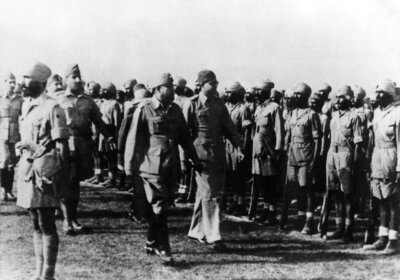


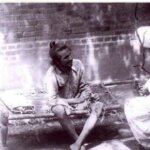


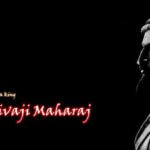
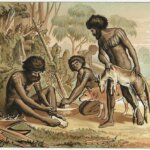



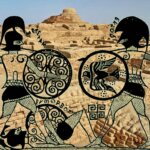





Pingback: Remembering Chandrashekhar Azad On His Death Anniversary
Pingback: Cricket Diplomacy In Ind Vs Aus 4th Test Match - panchayiti